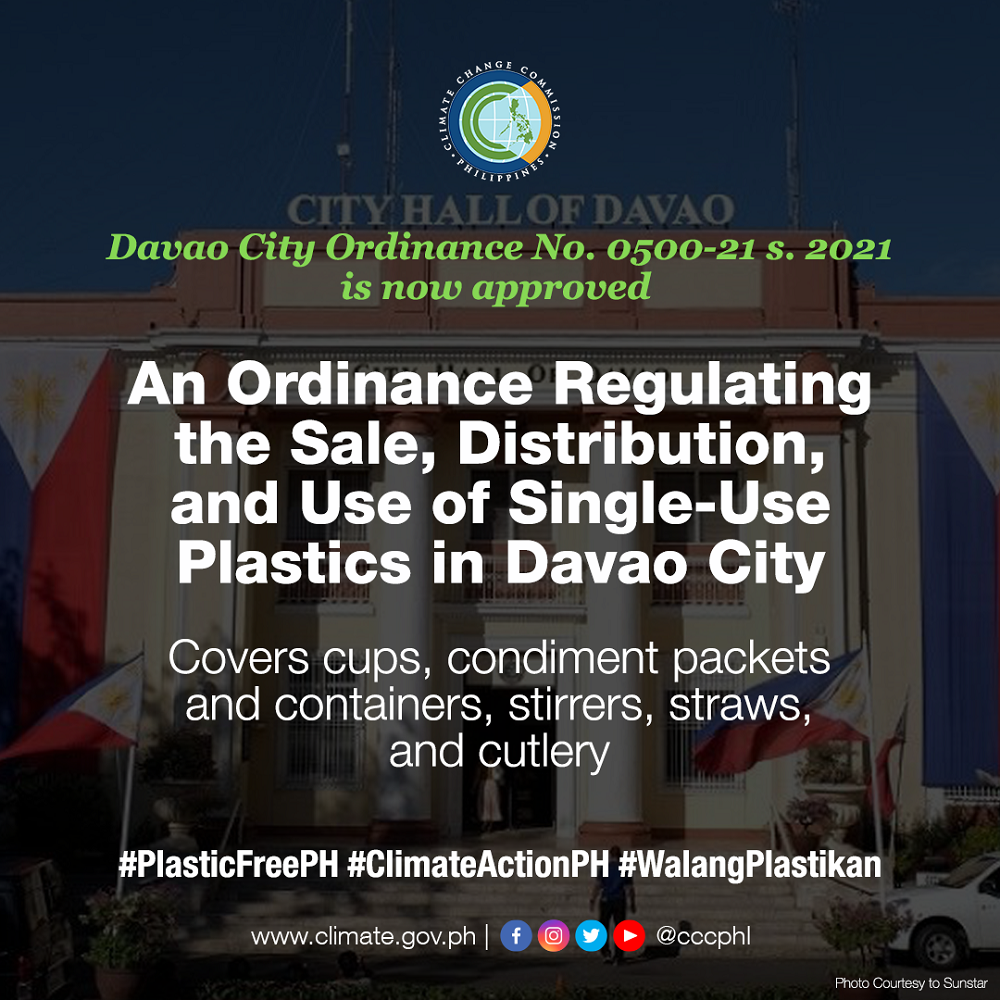
June 29, 2021 Tuesday

MANILA, 30 June 2021 — The Climate Change Commission (CCC) lauded the Davao City Government on the signing of an ordinance banning single-use plastics in the city, citing the landmark ordinance as part of growing momentum towards a national ban.
“We laud the Davao City Government for enacting this much-needed ordinance which will help address the problem of plastic pollution and chart a more sustainable development path for Davao City,” said CCC Commissioner Rachel Herrera.
The “No to Single-Use Plastics Ordinance of 2021” was enacted by the Sanggunian on March 2, and recently signed by Davao City Mayor Sara Duterte-Carpio. It will ban the use of single-use plastics in the city, and will regulate their sale and distribution. Among the products to be prohibited include cups, condiment packets and containers, stirrers, straws, and cutlery.
“Davao City is now one of the nearly 500 local government unit which have ordinances prohibiting SUPs,” Herrera noted.
“More and more LGUs across the country are taking the initiative to address the problem of plastic pollution, and it is high time for a national law so that action on this front becomes more effective, more impactful, and more sustainable,” she added.
The CCC, led by its Chairperson-designate Department of Finance Secretary Carlos G. Dominguez, has been pushing for the passage of a law to phase-out single-use plastics starting with the most problematic types, citing this campaign “as a crucial component of effective solid waste management and climate crisis action.”
Along with advocates and stakeholders, the CCC provided inputs to the House of Representatives technical working group that consolidated multiple bills regulating SUPs filed in the lower house, resulting in House Bill 9147 which has been approved on second reading.
The proposed legislation will begin a phased ban on SUPs as part of the broad range of solutions needed by the country, including establishing Extended Producer Responsibility or EPR, which will hold producers responsible for collecting and recycling the amount of plastic they produce and introduce to the market; improving waste management; incentivizing consumers, retailers, and manufacturers; exploring alternatives to SUPs; and raising awareness and changing behaviors.
In its position paper on the bill, the CCC emphasized that it is aligned with the aim to “to advance realistic solutions to address the challenge of single-use plastics pollution and provide a clear pathway for the pursuit of sustainable consumption and production,” adding that a law “will serve as an overarching framework and a unified policy to strengthen the impact of existing local ordinances that currently ban or regulate single-use plastics across [the Philippines].”